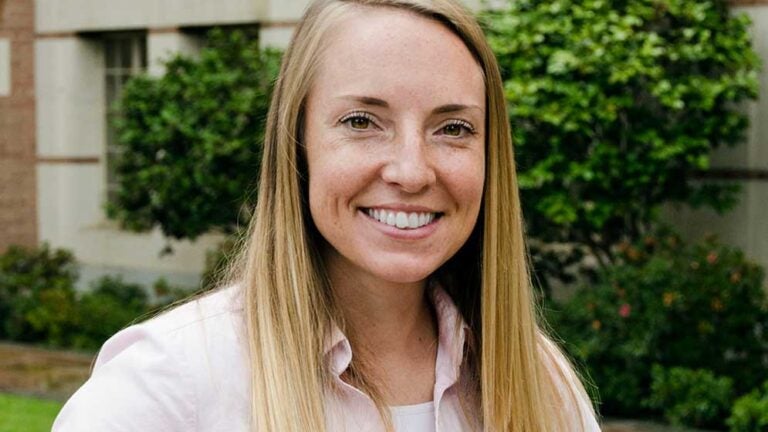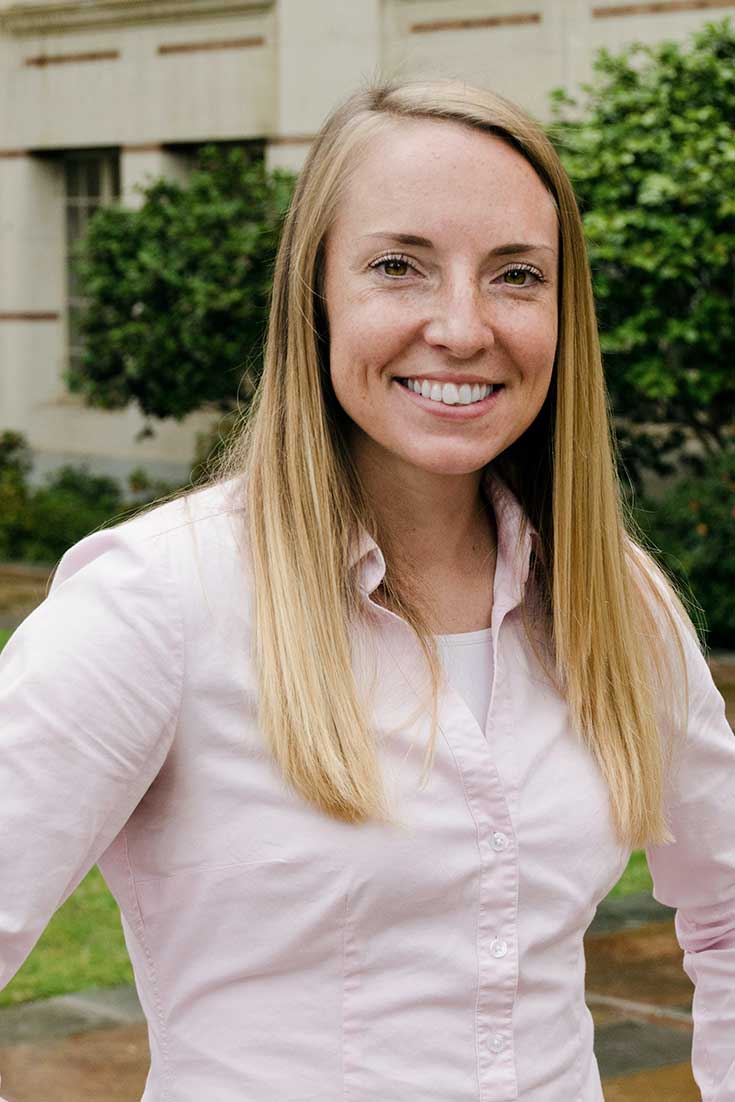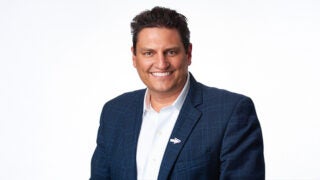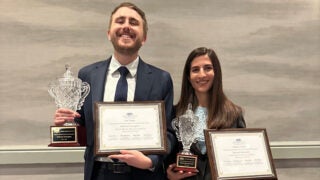
Kim Brimhall brings her experience on the softball field into her leadership roles. (Photo/Courtesy of Kimberly Brimhall)
A sign of strong leadership on and off the softball field: Make everyone feel wanted
USC doctoral student with a love of the game offers insights on inclusion in the workplace

One year, Kim Brimhall would be a dynamo on the softball field, cracking nearly every pitch sent her way and hurtling around the diamond making defensive plays.
The next year, she’d be a dud, logging strikeout after strikeout and dropping easy catches.
Although only 8 or 9 years old at the time, she quickly connected the dots. Each year, she had a different coach.
“I realized leadership made a big difference in terms of how well I played and how much I felt included,” she said. “If I felt like I belonged, I tried harder and played better.”
That early lesson in the power of leadership stuck with Brimhall, who recently completed her PhD at the USC Suzanne Dworak-Peck School of Social Work and has shaped her career around exploring how leaders can be more inclusive.
Not feeling appreciated
Most kids want to feel like one of the gang, but Brimhall had an acute desire to fit in with her peers during her childhood in Sacramento. Her parents, although both hard workers, didn’t have a lot of money and even lost their house for a short time. She recalled living with no electricity or hot water for about a year and a half, waking up early to take a freezing shower before heading off to middle school.
In a team photo from the time, Brimhall is standing in the midst of her teammates in a damp jersey. She had forgotten to wash it the day before and because her family had no washer or dryer, she had to give it a makeshift scrub in the shower that morning.
“On the outside it might look like a normal softball photo, but inside I felt like I didn’t belong,” she said. “And ironically, the photographer placed me right in the middle of the photo, surrounded by everyone else. But I didn’t feel like I was like everyone else.”
Outward appearances don’t necessarily reflect whether an individual feels included, Brimhall said, and multiple layers of diversity and personal characteristics can influence that sense of belonging.
If I had a good coach who made me feel like I was an important member of the team, my background didn’t get in the way of helping me feel valued.
Kim Brimhall
“If I had a good coach who made me feel like I was an important member of the team, my background didn’t get in the way of helping me feel valued,” she said.
“I’m very grateful for the way I grew up and my circumstances because it has made me more sensitive to things other people might overlook,” she added. “I’m taking those observations from the softball field and transferring them to the workplace.”
Making the team
The first member of her family to go to college, Brimhall attended Brigham Young University–Hawaii on a softball scholarship. As an undergraduate studying psychology and organizational behavior, she joined a research team interested in understanding workplace dynamics.
Again, she noticed how the climate created by leaders in the workplace, particularly whether they recognized and valued the unique characteristics and cultural background of their employees, played a big role in job performance.
That lesson repeated itself once more a few years later at an adolescent treatment center in Orem, Utah, where Brimhall worked as a therapist.
“When I became a supervisor, I realized I had a lot of power,” she said. “I started to see my staff much like the softball team, except this time I was the coach. I had a great deal of influence on whether my team performed well.”
Although she had earned her Master of Social Work from Brigham Young University in 2011 and initially planned to pursue a clinical career, she became increasingly interested in working with organizations to determine how leaders can create better environments that result in higher-quality service and care.
Follow the leader
Drawn to USC by the work of her future mentor, Michalle Mor Barak, who serves as the Dean’s Professor of Social Work and Business and specializes in diversity and inclusion in the workplace, Brimhall applied for and earned a spot in the doctoral program.
As she began considering how to approach her dissertation, she decided to examine a popular theory known as transformational leadership. In surveys with the staff of a pathology and laboratory medicine department at a large pediatric hospital, many aspects of the theory rang true. Participants viewed strong leaders as those who inspired and motivated their employees and demonstrated genuine concern for their well-being.
But in one-on-one interviews with employees, Brimhall started noticing some discrepancies. For instance, scholars have argued that transformational leaders frequently talk about their values and beliefs and display confidence and strength. To some extent, participants in her study disagreed.
“They said it’s not just about talking the talk, it’s about walking the walk,” she said. “And leaders who are displaying all this power and confidence are not approachable. They don’t listen. You have to worry about those leaders because they have their own agendas.”
In response to her findings, Brimhall is starting to sketch out a rough model of her own theory of inclusive leadership, a model she plans to test in her new job this fall as an assistant professor at Binghamton University, where she will conduct research at the Center for Leadership Studies and teach courses on leadership in organizations and advanced statistics.
End game
If her new theory pans out, she hopes to start developing evidence-based practices that will help leaders become more welcoming and inclusive, ultimately improving the lives of their employees and the clients they serve.
For now, however, Brimhall is focusing on the big cross-country move to New York with her husband, Josh, and four children, Kapri, Libby, Emerson and Enzo, all of whom are excited for snowy winters.
Her time on the softball field is also coming full circle. For the past few years, she has coached her daughters’ Little League softball team, and she recently began coaching her son’s tee-ball team.
“Yes, I want them to learn how to play the sport,” she said, “but my bigger concern is helping them build confidence when they are young and making sure they feel valued and included.”



